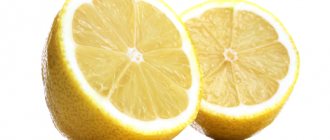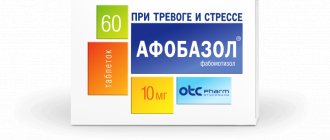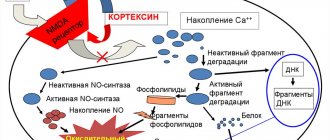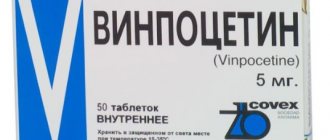How to improve a teenager's memory
Poor memory is often cited as one of the reasons for a teenager’s poor performance at school. Indeed, a teenager’s memory is often upset for various reasons. But is it really that scary? Perhaps there is a way to improve a teenager’s memory, thereby increasing his academic performance?
Situations are quite possible when a teenager has great difficulty remembering formulas, dates of historical events, rules of grammar or lines of poems and at the same time knows perfectly well the year and history of the creation of the group “Led Zeppelin”, the year of release of the first album and the composition of “The Doors” or the names all Manchester United players, the technical characteristics of a Lamborghini, or remembers the ASCII code table by heart. Is it possible to say in this case that the teenager has a bad memory?
What does "bad memory" mean?
It has long been noticed that after unsuccessful attempts to remember the topic, ending with a bad grade at the blackboard, the topic of the lesson suddenly pops up in the student’s memory of its own accord after just one comforting word and a gentle look from a pretty classmate. “I know it! I was just confused at the board..."
So, in fact, does the concept of “bad memory” even exist? Of course, if this is not due to bad heredity, disease or lack of thyroid hormones...
Perhaps it is appropriate to draw some parallel here with the world of computing, where there is also the concept of “memory”. So, the computer also has memory, and it can be operational (short-term) and permanent. When the computer is running, the necessary data is loaded into RAM from permanent memory, which is physically located on the hard drive, and then various operations are performed with it.
Accessing data in RAM is much faster than accessing the same data stored on a hard drive or external storage devices, and access to disks depends on their speed and the quality of connections.
What happens if the connection between the hard drive and the computer circuitry is broken? Access to data on the disk will deteriorate or be completely interrupted.
The same thing happens with a teenager’s memory, which actually stores all the information about everything that happened to him over a certain period. It’s just that, for some reason, the data from the teenager’s “hard drive” does not enter his “RAM” or it is difficult to find it. How to strengthen the “connection”?
Learning with passion: the right path
So, a teenager who does not remember formulas and rules, but can remember the names of the players of his favorite football team on the fly, cannot in any way have a bad memory. It’s just that this young man or young lady is characterized by emotionality, they may have a lyrical and even romantic mindset, so their subconscious simply rejects dry facts.
And, on the contrary, there are many cases from life when C grade students became excellent students, when a “dry” school subject began to be taught by another teacher, leading the lesson emotionally and very interestingly, using interesting facts from the history of the subject and about outstanding scientists, so much so that the former A C student in literature becomes a brilliant philologist.
Emotions - positive and negative
The learning of a lesson by “problem” teenagers occurs much faster and more firmly if new information is presented in such a way that the teenager sees that the teacher himself is very passionate about his subject, loves it and is an expert and a good specialist.
It will help assimilation, and, consequently, improve memory, if the teacher cares about such a teenager and with satisfaction and joy draws the attention of other children, as well as his parents, to this.
The positive emotions experienced by the student will be a strong motivating factor for successful studies. On the contrary, negative emotions (the teacher scolds, parents are unhappy, classmates laugh) can cause self-doubt, isolation, reluctance to learn and bad behavior.
Article tags:
improve memory
|
|
Methods
First, you need to get to know exactly what methods of memory development children have and which of them can be successfully implemented at home. It would also be a good idea to find out in kindergarten and school what they use there, so that there are no contradictions in pedagogical systems.
Games
Since the leading activity in childhood is play (especially in preschool children and in primary school), this method of memory development is considered one of the most effective. The choice is quite large. The main thing is to fit into the age range.
For the development of visual memory
- "Let's go to the exhibition"
An illustration, a picture, a reproduction of an artistic canvas (depending on age) is given for study for 30-60 seconds. The task is to describe it in detail.
- "Auction"
Several toys are displayed and removed after a minute. Whoever describes the items they like the most and in more detail wins.
For the development of auditory memory
- "Telling a fairy tale"
In a group of 5-7 people, each person takes turns composing 2-3 sentences; all subsequent storytellers should not be confused about the characters and should continue the storyline to make a fairy tale.
- "Shop"
Talk out the shopping list (the number varies depending on age) so that the child remembers it.
These games will help develop memory in preschoolers and primary school children. Teenagers need to be offered something different. In particular, tabletop (chess, checkers, lotto) and computer (strategy, action).
Exercises
Special exercises help train your memory well. They are already deprived of a playful form and prepare children for the fact that this process often requires effort and perseverance. In adolescence, this method becomes the leading one.
- "Remember the words"
An adult says aloud several unrelated words. The task is to repeat them in the same sequence immediately, after half an hour and after 2-3 hours.
- "Sea of Sounds"
A melody or any sound is turned on. We need to guess a song, a piece of music, or who pronounces such sounds and where we can hear them.
- "Pig in a poke"
Having put your hands into a closed and tight bag, you need to feel the objects lying there and name what they are.
- "Young Artist"
The adult names the words, the child draws them. At the same time, it is not necessary to depict every detail and strive for proportions and aesthetic artistry. The task is to name these words in an hour, using your own illustrations.
Exercises that develop memory are good because they can be used at literally any age by choosing the right tasks. After 12 years of age, a child can perform them independently, without adult supervision.
Neurobics
Neurobics - gymnastics for the brain. Modern developing technology at the peak of popularity. Programs adapted for children have already appeared.
- Mental arithmetic, without a calculator.
- Solving puzzles, crosswords, riddles.
- Go with your child to kindergarten, school, store, or just for a walk on different routes. Let him remember the characteristics of each.
- Starting at the age of 10, ask him once a week to perform familiar actions with the other hand: brushing teeth, holding a spoon, writing.
- Ask your child a basic question and ask him to answer in different ways.
Example of the last task.
Question: what kind of apple is this?
Possible answers:
- “Delicious” (green, big and its other characteristics using adjectives).
- “I need to try it to answer this question.”
- “It was bought in a store” / “It was recently picked from the garden”, etc.
Neurobics develops thinking, brain activity and intellectual abilities, and at the same time trains memory. The volume of memorized information becomes larger.
Finger gymnastics
Finger gymnastics synchronizes the work of the right and left hemispheres, and also helps to develop the child’s speech abilities at an early age. Experts say that it must be included in memory training classes from 3 to 10 years and even older. There are a huge number of complexes in verse that will be interesting to all children:
- White-sided magpie;
- Bunny;
- Lock;
- Ship;
- Berries;
- Maple;
- Fish and many others.
Example of the “Lock” exercise:
All poems for finger gymnastics exercises are read by adults clearly, rhythmically, but slowly. For the first time, you can do everything together, and then ask the child to repeat the movements to the words of an adult independently.
Speech exercise
To develop a child’s memory, you definitely need to speak tongue twisters with him. With age they should become more complex and longer. They activate the speech areas of the brain and strengthen neural connections.
- For preschoolers
Ivashka has a shirt, the shirt has pockets, Pockets have a shirt, Ivashka has a shirt.
- For elementary school
Grass in the yard, firewood on the grass. Don't cut wood on the grass in your yard.
- For teenagers
The cap is not sewn according to Kolpakovsky, the bell is not poured according to Kolokolovsky. The bell needs to be re-capped and re-caulked, the bell needs to be re-bellied and re-caulked.
Poor memory in a child: reasons
It is worth noting that many children, or rather their parents, do not know about the child’s poor memory before he enters first grade. After all, it is at this moment that the number of tasks increases, so it is very difficult for the child to concentrate and perform at his best. There are several main reasons why a child may suffer from poor memory.
First grader
Causes of poor memory in a child:
Wrong daily routine. The point is to activate all the brain centers, make memorization easier, there is no need to put pressure on the child and load him with constant cramming. Try to do loads by alternating. That is, alternate physical as well as mental activities. Accordingly, the best option would be to study for about an hour, then go for a walk or some kind of section where the child can do physical exercises, running, or strength training. This is the optimal routine
Pay attention to your baby's bedtime and wake time. Very often, poor memory can be caused by the fact that the child does not fall asleep well or goes to bed late
Accordingly, he does not have enough sleep, because of this he cannot concentrate and work productively during the day.
Insufficient amounts of vitamins and minerals. The fact is that some vitamins, as well as microelements, help improve memory. Accordingly, their lack can provoke poor memorization. In this case, it is necessary to periodically give the child vitamins, and also review his diet in the direction of increasing the amount of healthy foods. Give preference to fresh fruits, vegetables, fish and meat. Don't forget dairy products. You should not give your child a variety of fast food and sweets. Although two sweets won't do anything bad. After all, fast carbohydrates in the form of sugar are an excellent source of brain nutrition. They will come in handy when the child is a little tired and will help turn the brain centers into work.
Insufficient memory training. That is, the child is pedagogically neglected. Most often this occurs in children with poor speech. After all, the development of speech really indicates how well the child’s memory develops. If a child speaks poorly, swallows words, it is difficult for him to express his thoughts, he thinks for a long time about what he wants to say. Most likely there are some problems with memorization and memory.
Another cause of poor memory in a child may be neurological disorders. Most often this is associated with difficult childbirth, cesarean, and prematurity of the child. Most often, such children, immediately after birth, are registered with a neurologist and given medications that stimulate brain activity. Accordingly, if you did not have any special problems during childbirth, but the child suffers from poor memory and all activities do not produce any results, it makes sense to consult a neurologist. A truly experienced specialist can prescribe medications that stimulate brain function and help your child learn.
At school
Features of taking vitamins for memory
The intake of useful substances into the children's body, which in one way or another help improve brain function, is necessary from a very early age. Immediately after birth, the baby receives everything he needs through mother's milk, and subsequently it is important to accustom him to a varied diet that can meet the needs of a growing body.
Unfortunately, the diet of most children is far from ideal. And not even because it is oversaturated with such useless products as sweets, chips or sweet soda, but rather because children are reluctant to eat fish, many types of meat, and vegetables. Children do not receive enough vitamins to improve memory from food, therefore, they must be taken additionally.
When choosing a suitable vitamin-mineral complex, it is best to use the pediatrician’s recommendations; in addition, it is important to pay attention to the components included in the drug. Unfortunately, not all manufacturers take into account the needs of the child’s body at every stage of its growth. Other disadvantages of some vitamin supplements include exceeding the WHO recommended daily allowances and the wrong combination of ingredients.
What are the dangers of an overdose of certain vitamins, and what organic compounds are best combined with each other?
Vitamin B1
Thiamine levels may decrease when taking antibiotics and antacids. With a single dose of an excessive dose, severe signs of allergy are observed, and long-term overdose threatens to impair the functions of the kidneys and liver.
It is well absorbed by the body and does not antagonize with other components of vitamin-mineral complexes.
Vitamin B6
Symptoms of overdose are depression, muscle weakness, pain in the fingers and toes.
It interacts best with vitamin B3, as well as calcium and copper.
Vitamin E
Long-term use of high doses leads to blood clotting disorders, provokes gastrointestinal disorders, and headaches.
Improves the absorption of vitamin C, and when taken simultaneously with vitamin K, it can provoke pathological bleeding due to its ability to thin the blood.
Selenium
Too high doses have a toxic effect on the body, leading to gastrointestinal disorders, disorders of the nervous system, irritability, and fatigue. There may be a garlic odor from the breath, brittle nails and hair, and a skin rash.
Selenium is best absorbed with vitamin E.
Zinc
Long-term consumption of excess amounts of zinc provokes suppression of the immune system and contributes to copper deficiency. A one-time intake of an excessive dose may cause nausea and vomiting.
Absorbed best with sufficient magnesium levels.
Iodine
In acute iodine poisoning, there is an acute burning sensation in the digestive tract, diarrhea, nausea, vomiting, and fever. The pulse weakens, consciousness becomes confused. Constant consumption of high doses of iodine leads to the development of diseases such as goiter, thyrotoxicosis, and thyroiditis.
Iron
A deficiency of this microelement is diagnosed quite often, despite the widespread availability of iron and its fairly easy absorption by the body. An overdose can lead to gastrointestinal disorders, as well as dysfunction of the cardiovascular and nervous systems, liver, and kidneys. Taking iron supplements must always be agreed with your doctor because of the fairly large list of contraindications.
Iron interacts best with vitamins B6 and C.
Vitamin B12
It is absorbed by the body in the required quantity, so cases of overdose are rare. However, sometimes when the dose is significantly exceeded, numbness and a feeling of tightness in the limbs may be observed.
It is best absorbed with other B vitamins, especially B5 and B9.
Herbal infusions
In order to improve your memory, it is not necessary to immediately resort to drug treatment. There are quite a few remedies in folk medicine that have both preventive and therapeutic effects.
Clover tincture
In order to prepare this infusion, you will need half a liter jar of clover heads. Add ½ liter of vodka to them, cover with a lid and hide in a dark place. Leave for two weeks, stirring it daily. After the designated time, pour the resulting liquid into a dark container. Take 1 tablespoon in the afternoon for three weeks. Then take the same break and repeat the procedure. The course of treatment should be 3 months.
Red rowan bark
Add a glass of boiling water to one tablespoon of bark and keep on low heat for 10 minutes. Then pour everything into a thermos and leave to steep for 6 hours. You need to take it 3 times a day for one month. This course should be repeated twice a year, preferably not in the summer. The decoction will not only improve memory, but also saturate the body with vitamins and strengthen the immune system.
In her program, Elena Malysheva will talk about herbs and spices to improve memory.
Herbal collection
Before you start preparing the infusion, mix the dry herbs: raspberry leaves - 6 teaspoons, lingonberries - 6 teaspoons, oregano - 2 teaspoons and bergenia - 8 teaspoons. Then from the resulting mixture, take one tablespoon and fill the collection with ½ liters of boiled water. Keep on fire for 10 minutes, then cover the dish and leave for 2 hours. You need to drink this mixture twice a day for at least 3 weeks. The course is held 2 times a year.
Sage and mint
Take 2 teaspoons each of dry mint and sage. Place the herbs in a thermos and fill them with 500 ml of boiled water. Before you start drinking the infusion, you need to strain it. Take 50 grams four times a day 30 minutes before meals.
"Grandma's" recipe
To prepare the infusion, you will need about five table pine needles, which will need to be chopped. Add onion peels and rose hips (two tablespoons each). Pour the resulting mixture with a liter of cold water and boil for about 10 minutes. Leave the infusion overnight in a warm place. The course lasts two weeks. Every day, take 1 tablespoon 5 times.
Improving memory and brain function
Try to focus on one thing at a time. If you are sitting at a lecture, do not be distracted from the person who is giving the lecture, do not talk to friends, even if you have not seen them for a long time, do not correspond on the phone, do not be distracted anywhere. In the evening, in a calm atmosphere or on the way home, try to remember and recall the entire lecture down to the smallest detail, remember the teacher’s gestures or walking, what he talked about, the clothes he was wearing
Proper nutrition is very important for brain function. Try to avoid snacking on the go and don’t eat fast food - it’s bad for your brain.
Include the following foods in your proper diet: vegetables, fruits, honey, dried fruits, dairy products, nuts, herbs. Don't overexert your brain. If you feel tired, there is no need to overexert yourself, give your body a chance to rest. A tired person perceives information poorly or does not perceive it at all. Load your brain only with useful information. Try to discard unnecessary and unnecessary information, don’t get hung up on it, you need to be able to filter the information that comes to you. Unnecessary information only clogs your brain. Don't forget about walks in the fresh air. Active walks in the fresh air, preferably outside the city in nature, are necessary for the proper functioning of the brain; these can be various sports or just active recreation. Active games in the fresh air are the key to the proper functioning of your brain and body as a whole. Develop memory and attention with specially designed exercises to improve memory and attention for adults and children.
The importance of memory and attention
Imagine you are walking around the city and you don’t know that this is your city, you don’t remember your first and last name, you don’t know where you live and where you work, you don’t know anything, you’ve forgotten everything. It's getting scary, isn't it? Terribly scary.
Let's not reach this extreme point, let's study, develop our memory and attention.
Man is a very cunning and lazy creature, and if he is not moved and developed, he will be worse than a monkey. So our brain, if you don’t load it, it starts to get lazy and tells you: I don’t remember, I forgot, and so on.
Remember your school days. For nine months your brain works without rest, it learns a lot of interesting and useful things, learns poems and songs, studies history and mathematics. The brain is tense, it is always at work.
Then for three months of vacation your brain rests, does nothing, is lazy. And the time comes again, the first of September, it’s time for you to go to school. Oh no, your brain says, I don’t want to, but it’s starting to get lazy and it’s a difficult period to get it to work with the same productivity as those nine months.
From birth to old age, it is necessary to develop memory and attention. Sometimes people think that they are retired and don’t need to do anything. They stop reading, counting, and engage in simple everyday life. The brain begins to get lazy and what does this lead to?
Pensioners often forget everything: they put the kettle on to boil and forgot, they went to the store and forgot what they needed to buy, they came to the pharmacy and don’t know what medicine they need.
Poor memory in a child: types of medications and their effects
Initially, you need to try to improve the child’s memory through training. There are entire complexes for this. The easiest option is to learn poems with children. This method is best suited for children who go to kindergarten. By the way, this will be good training for further preparation for school. By learning poetry well, a child will quickly remember the alphabet and learn to read.
However, if such methods do not give results, and you have not moved forward, the baby still has a very difficult time remembering poetry, and it takes several hours to learn a small quatrain, then it makes sense to turn to medications. It is worth noting that there are a huge number of means for improving memory; their action can be based on different substances. The safest and most harmless are special vitamin complexes for memory. They contain a large amount of minerals and trace elements, as well as vitamins that promote memory.
On learning
Types of medications for poor memory in a child:
- Sedatives and antidepressants will help improve memory. You may ask, how do these medications help improve memory? The fact is that scientists have found that people who are depressed actually suffer from memory impairment. This condition negatively affects memory and deteriorates the functioning of the brain and all systems in the body as a whole. Accordingly, if a child suffers from depression, or there is bullying or harassment at school, then, of course, it is best to give the child antidepressants and eliminate the irritating factor. In addition, such drugs may act slightly differently. Nowadays, herbal infusions, as well as special herbal components, are given for this purpose. Many of them can actually significantly improve memory.
- Substances that affect the functioning of the brain, improving its activity. Most often, such drugs are prescribed for traumatic brain injuries, strokes, and coronary artery disease. They are often given during recovery from a concussion. However, these drugs are popular with a neurologist if the child’s poor memory is due to some kind of disease. In particular, this may be increased intracranial pressure, birth trauma, as well as some organic brain damage. The child may have been injured and hit his head hard. In this case, these drugs will indeed help improve blood circulation in the brain, which will improve the child’s memory.
- It is worth noting that medications that stimulate brain function are sold only with a doctor's prescription. That is, they are not available for free sale. But they are not recommended to be given to children who do not suffer from neurological illnesses or diseases. However, if a child has any indications for use, then it is imperative to contact a neurologist. However, this most often happens in exceptional cases, when the child has really serious problems with memorization, and he cannot remember the quatrain within two hours. Indeed, in this case it is necessary to sound the alarm. We recommend that your child, who is absolutely healthy, use herbal preparations.
Homework
Age norms for memory formation at 8-11 years old
As noted above, each child’s age has its own standards for memorizing and assimilating information coming from the outside world.
Thus, we can highlight the following features of memory formation in children aged 8-11 years:
- At this stage, there is an active development of voluntary memory - the student begins to set himself a special task to learn certain information. Moreover, the processes of memorization and reproduction act as mnemonic actions,
- gradually the child begins to master memorization techniques. At first, he uses simpler techniques, for example: reviewing the material, repeating it many times, dividing information into smaller blocks,
- self-monitoring of memorization results is carried out at the level of recognition. For example, a student looks at a story and thinks that he has learned it because it seems familiar to him,
- younger schoolchildren (8-11 years old) have more developed figurative memory.
REFERENCE. Parents should keep in mind that if a child has problems remembering this or that material, measures to improve memory should be adjusted taking into account his age and the standards established in medicine.
Tips on how to improve your memorization processes
To improve the child’s memory and brain function, it is important to follow the general recommendations of doctors and psychologists, first of all this concerns the regime and lifestyle. Bad habits, poor nutrition, and a sedentary lifestyle worsen the health of a child’s still developing body and increase the likelihood of developing diseases.
Of course, this cannot but affect his performance, because in order to cope with academic workloads and preparation for exams, he simply needs to feel good.
There are many different techniques to develop the memory of teenagers.
Some of them are aimed at training the perception of information by ear, others at developing visual memory. You can practice on your own; educational websites contain many examples of exercises aimed at improving brain activity. However, in order to sufficiently develop memory and attentiveness, it is necessary to train them consistently, systematically. It is not always possible to cope with this task on your own, but only in this case, activities that improve memory will help the child more easily master the material of the school curriculum.
Various centers for additional education for children and adolescents come to the rescue. They host group classes that are aimed at improving memory. When choosing such an educational institution, you need to pay attention to the methods by which training is conducted. You should not give preference to those centers that promise to achieve improved results in a short time.
Carefully choose those educational institutions where memory development classes are conducted according to time-tested programs. They will help the teenage intellect, which is still developing, to improve its abilities so that the child subsequently studies and works well.
How to keep your memory in order
Eat right
Short-term and long-term memories are stored in different parts of the brain. Memory works smoothly if nothing interferes with the transition of short-term memory to long-term memory - this process is called consolidation. The hippocampus, the area of the brain responsible for orientation and transferring short-term memory to long-term memory, “feeds” on glucose. Its high concentration in the blood when consuming refined sugar and sweet drinks exhausts the hippocampus and inhibits its functions. But a complete refusal of sweets, even fruits, will lead to weakening of memory.
Conclusion: reasonable consumption is important. Green tea contains the antioxidant EGCG - epigallocatechin gallate, which promotes the generation of brain cells and helps prevent degenerative age-related diseases
A study in Japan found that elderly Japanese who drank more than 2 cups of green tea per day had a 50 percent lower risk of memory and attention problems than those who drank less than 2 cups or drank other beverages.
Green tea contains the antioxidant EGCG - epigallocatechin gallate, which promotes the generation of brain cells and helps prevent degenerative age-related diseases. A study in Japan found that older Japanese people who drank more than 2 cups of green tea per day had a 50 percent lower risk of memory and attention problems than those who drank less than 2 cups or drank other beverages.
Magnesium, found in nuts, dark green leafy vegetables and legumes, bananas, figs and fish, improves memory. Experiments in mice have shown that increasing magnesium in the brain enhances the functions of various forms of learning and memory, promoting cellular plasticity. I personally confirm that it works. A portion of figs before an exam once saved me and helped me remember the answer to a question on a seemingly forgotten topic.
Green tea with dark chocolate - a snack for excellent memory
Set up a regime
Healthy sleep plays a key role in maintaining and improving memory, and even one night of sleep deprivation leads to loss of brain cells. It is during rest that the so-called consolidation of memory occurs - the transfer of short-term memories into long-term ones.
By the way, this is why it is important to get a good night’s sleep the night before the exam, especially if the preparation process has been delayed until the last minute. You need at least 8 hours of sleep every night
Based on the recommendations of the National Sleep Foundation, only after the age of 64 a person needs less time to sleep:
Get rid of stress
Short-term stress can be good for memory, so there is a chance to remember the essence of a long-forgotten thesis at an important interview. But a long-term excess of cortisol, the stress hormone, literally reduces the brain in size and impairs memory
Exposure to the hormone disrupts connections between neurons and changes the size of the brain's prefrontal cortex, which is responsible for concentration and decision-making. Research shows that this effect is most noticeable in women and people over 40.
Maintain a healthy lifestyle
Excess weight leads to problems with the heart and blood vessels, and the blood supplies the brain with nutrients worse, impairing memory. On the contrary, exercise and physical activity can lead to the growth and development of neurons, which has beneficial effects on memory and overall brain function. Activities that require coordination of vision with body movements and social interaction work especially well: table tennis, badminton and dancing.
Take your vitamins
Preferably after passing tests and under the supervision of doctors. First and foremost, you need magnesium and B vitamins.
You can buy vitamin supplements without a prescription at any pharmacy.
Recharge your brain
Like a computer, you sometimes need a reboot to get rid of unnecessary “files” stuck in memory. Try, for example, taking a shower with your eyes closed: the sensations will be more interesting, the smell of the shower gel will be more pleasant, and your brain will receive a useful impulse to reboot.
Activate new parts of the brain by moving the fork from your right hand to your left, or vice versa if you are left-handed. Try a new activity: horse riding, a new foreign language or a new knitting technique can be a great workout for the brain, creating new neural connections, improving coordination and ultimately strengthening memory.
Have a rest
Periodic breaks from activity help you remember information better. The main thing is not to switch to a new activity, but to let your thoughts wander aimlessly for 10–15 minutes.
If your health is good, memory can be improved using the same principles as fitness: periodic exertion, nutrient supply and regular rest.
What brain medications are used for adults?
It is especially important for people to use drugs that improve memory and attention in adults. The best of them are:
Divaza
It is used for disorders of the nervous system. It is also prescribed to patients with traumatic brain injuries. It restores interhemispheric connections between the right and left parts of the brain. Also, the substances included in this drug increase the brain’s resistance to toxic influences penetrating from the external environment. But pregnant women should not use it. However, the medicine cannot be used by people with glucose-galactose malabsorption, congenital galactosemia, or congenital lactose deficiency. It contains glucose.
Undevit
It contains vitamins A, B, C, E, P. All together they have a slight synergistic effect on the human body. The drug improves metabolism in the body, so it is usually prescribed to older people. Apply it 2-3 tablets per day. The course is 20-30 days. The drug often causes allergies.
Encephabol
It contains pyritinol. It is this that improves metabolic processes in the brain and has a slight antioxidant effect on the body. It is usually prescribed to people with a traumatized head, atherosclerosis, and encephalitis. But people with hypersensitivity, kidney disease, and autoimmune pathologies should not use it. The drug has side effects. So its abuse can lead to a complete loss of appetite, allergies, and fatigue. This medication is prescribed very rarely. Moreover, before using it, the patient must undergo a full examination.
Editorial: Causes and symptoms of intracranial hypertensionCavinton
It contains vinpocetine. It has a beneficial effect on brain tissue. This medication is prescribed to people with encephalopathy, those who have had a stroke, or those suffering from severe consequences of atherosclerosis. But pregnant and nursing mothers, as well as people suffering from severe anemia, should not use it. The medicine also often causes side effects. The patient may experience a sharp drop in blood pressure, severe migraine, dyspeptic reaction, dry mouth, and increased heart rate.
Cerebrolysin
It contains a concentrate of peptides that was specially derived from pig brain. This drug improves the condition of nerve cells. It is usually prescribed to citizens suffering from Alzheimer's disease, those who have suffered a traumatic brain injury, or those suffering from complications arising from a stroke. But people with hypersensitivity, epilepsy and kidney disease cannot use it. Taking such a drug by this category of citizens can lead to prolonged depression, loss of appetite, and a jump in blood pressure.
Noopept
This medication was developed by Russian scientists. Not only does it improve brain activity and memory, but it also acts as a natural brain peptide. It also improves brain activity on three main levels:
- at the introductory stage,
- during primary information processing
- and playing it back.
Additionally, Noopept has a neuroprotective effect on brain neurons. He restores them and maintains them in normal condition. Moreover, Noopept also restores normal blood circulation in the brain. It is prescribed to people with low concentration. It is usually taken by senior citizens. But pregnant women and women breastfeeding should not use it. People with hypersensitivity should use it especially carefully. The drug may cause allergies or a sharp increase in blood pressure.
Memoplant
This is a herbal preparation that improves brain activity and memory, tones the blood vessels of the brain, normalizes metabolic processes, relieves headaches, eliminates tinnitus, and improves blood flow to the extremities. Use no more than 120 mg per day.
Expanding your memorization capabilities
We offer effective ways to develop your thinking processes at home and completely free of charge.
Feelings
The method of co-feelings allows you to build memorable associations. To do this, you need to learn to connect all five senses. For example, create associations for the word “airplane.” How do you see it? What do you hear? How do you feel after the touch? What taste do you feel? What's the smell?
In this way, you can learn to more acutely perceive and remember new data more reliably. It is difficult to forget something that caused the activity of several senses at once.
Training attention
Attention is something without which it is impossible to achieve maximum memory. In the era of information overload, it is simply necessary to be able to focus on the main thing
The following exercise is suitable for those who are looking for how to train memory and attention for one minute a day
Set your stopwatch to 60 seconds. Make marks in the figures as shown in the example, strictly one by one. Repeat the exercise every day until you can cross out everything correctly and meet the deadline. If you wish, you can increase the difficulty level and increase the number of figures. Print as many copies as you like and make the actions automatic.
Memorizing texts using pictograms
Pictograms surround us everywhere. These include smartphone icons, road signs, and brand logos.
Pictograms are an excellent means of memorizing any text that needs to be stored in memory verbatim, no matter if it’s a verse, a quote or a definition of a term.
A clear example of the use of this technique is in the book “100% Memory” by E. Dodonova.
So, in the first picture we see an excerpt from E. Yevtushenko’s poem “The Third Snow”.
This is how the author of the book depicted these lines using pictograms.
Thus, every person, young and old, can learn to quickly memorize by drawing pictograms as their own imagination dictates.
Mind maps
This method is also called “mind maps”, “mind maps” or “mind maps”. As with pictograms, they must be drawn. But it's worth it: mind maps have a long-term effect if you need to completely remember a book, organize a business project, or sketch out a vacation plan.
Step-by-step instructions for drawing mental maps look like this.
- In the center we depict an image of a task, problem or area of knowledge.
- We move the main sections of the map to the sides in the form of thick branches (we sign them to the minimum and number them).
- Using keywords, colors and icons, we reveal details on thin branches.
Let us remind you: memory exercises will give results only if repeated many times.
Exercise Cellular Toking
This strange, at first glance, exercise works like this:
- increases the speed of thinking;
- shows how hard your memory can stretch.
The task is as follows - you need to name all the objects that you see in the room in front of you. For example, a table, a chair, a monitor, a flower, a sofa, a carpet. Objects can be named with descriptive characteristics and without specifics. It is interesting to do the exercise with an observer in the room. He will evaluate the speed of your work, after what time you will be “blown away.” Over time, the pauses between words will increase, you will get confused in words and help yourself with gestures. This exercise is a great way to boost your brain activity.
After regularly performing this exercise, neurons begin to work not at half capacity, but at full strength. This kind of brain training will eliminate absent-mindedness and forgetfulness, and increase your response in stressful situations.
Features of teenage memory, attention and thinking.
Previously, the baby learned and memorized everything mechanically. Now the situation is a little different.
Teenagers develop faster and so does their thinking. At the age of 13, children already have well-developed logical thinking; they can form hypotheses and draw conclusions. And by the age of 16, the formation of mental processes is completed.
At this point, mechanical memory becomes weaker, and logical memory, on the contrary, becomes stronger.
The child feels unusual: after all, before everything was remembered by itself, but now it is necessary to make considerable efforts. And the effort lies in the fact that the child must understand the connection and meaning in order to remember.
The problem with modern schools is that children have to “cram” more, and hence have poor memory.
Teenagers' attention is also reaching a new level. Now students can consciously concentrate on an uninteresting topic or task. On the other hand, the impressionability and emotional state of adolescents make it difficult to maintain this concentration for a long time on an uninteresting object.
If a student’s memory sharply deteriorates, parents are obliged to contact and inform the doctor.
What is the volume of our memory
It seems that “short memory” and information instantly flying out of the head are the norm. But modern research proves that long-term human memory can hold 1 million GB. information. And that's a lot, a lot of space.
| Data store | Volume, GB. |
| 1 movie in excellent quality | 10,00 |
| Season 1 of the series in excellent quality | 100,00 |
| iPhone 7 | 256,00 |
| iCloud | 1000,00 |
| Computer hard drive | 2000,00 |
| Memory of 1 person | 1000000,00 |
| Internet traffic per second | 5000000000,00 |
Every person stores in memory not only facts, faces and numbers, but also functions: the ability to speak and move, sensory perception and expression of emotions.
Our memory does not adapt to new information conditions at all, decreasing in volume. We simply stopped training and using it, so it relaxed, like a muscle without a load. Yes, there are smartphones and services for remembering passwords, electronic phone books and encyclopedias in digital format. But there are definitely things in the world that you don't want to forget. This means you will have to make an effort.
After visiting New York, I actively photographed the views so that I would have something to “feed” pleasant memories
Sooner or later, the inability to remember useful information or remember important information in a timely manner begins to negatively affect productivity, work efficiency, pleasant communication and your overall peace of mind.
Human memory is larger than the most advanced computers, so it can definitely be improved
Causes of poor memorization
In practice, there are often cases where a child has memory impairment. This condition is characterized by the inability and inability of the child to preserve, accumulate and use information received by the child when interacting with the outside world.
There are many reasons for the development of this pathological condition. The following are the most common factors that negatively affect the development of memory in a child 8-11 years old, namely:
- constant stress and overwork, which negatively affect the general psychophysical state of the child,
- previous somatic diseases, as well as a consequence of seasonal hypovitaminosis,
- unsuccessful vaccination in early childhood,
- traumatic brain injury suffered by the child,
- development of various lesions in brain structures, including tumor growth,
- diagnosed delay in speech and general development,
- manifestation of acute and chronic circulatory disorders in the head, atherosclerosis, spasm of cerebral vessels and other pathological changes.
ATTENTION. It should be noted that in most cases, poor children's memory can be corrected and improved. In this case, in no case should this moment be ignored, since in the future poor memorability can lead to the development of psychosomatic, neurological and psychological problems in the student.
Life hacks for excellent memory
Use memory techniques to commit the information you need to memory:
Visualize. As you read a book, imagine the characters and setting. Mentally tie the name of a new acquaintance to his appearance. Masha is a tall brunette, Petya has a Spiderman tattoo on his neck. Describe the numbers in the phone number using simple images: 7 - poker, 2 - swan, 0 - donut.
Choose associations. Rhyme information to help you remember it better. Since childhood, I have known that “A bisector is a rat that runs around corners and divides them in half.” After school, I never had to halve a corner, but the information remained in my brain forever.
Organize your information. Clean up your mail and create separate folders for important recipients. When making a shopping list, break it down into categories: drinks, food, household chemicals. Decide on a place for important household items - a key holder, glasses on the bedside table, a remote control for the TV.
A simple key holder makes life much easier and saves time in panicky searches for keys before going out.
Organize important things. This method was once known as the “Cicero technique” or the “Roman room method,” but the famous series about Sherlock Holmes forever cemented the name “memory palace” in the public consciousness. It’s simple: in the imagination you create a room, or a house, a road, or even a magical forest. Things, events or concepts that need to be remembered are associated with certain elements of this space and objects in it. For example, a friend’s birthday is a balloon, a monthly loan payment is a bottomless pit. After this, it is enough to imagine this room or mentally walk along the road, remembering the associated information. By the way, if, when remembering your tasks for the week, you mentally imagine the entries on a page of a diary or even in a school diary, you are already using this technique.
By mentally imagining a diary page, you can quickly navigate the days of the week and plan things for the future or remember the past
Tricks and tricks do not impair the efficiency of memory, just as a short and fast path to the goal does not impair the quality of the road. You simply make your task easier and relieve stress by putting things in order in your head and life.










